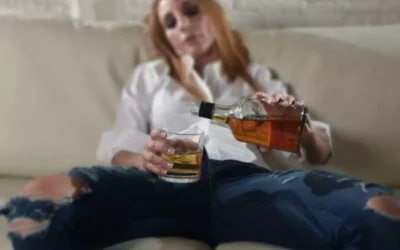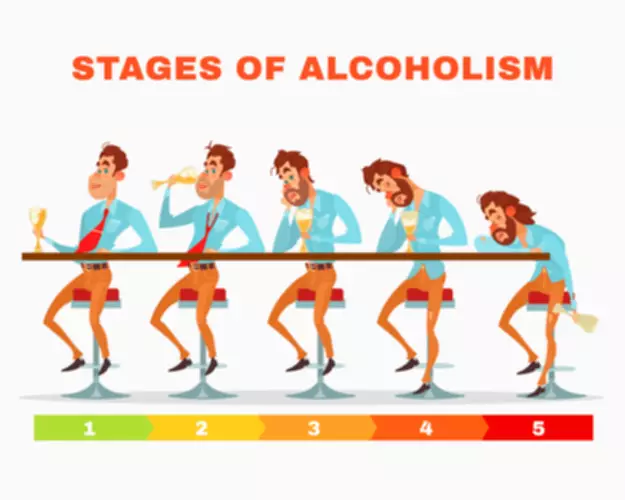SUD and AUD are not classified as mental health disorders worthy of triggering a mandate to involuntary rehab in DC. However, if someone is deemed to be in immediate danger of harm due to chronically misusing alcohol, it is possible to be ordered to go to drug rehab. To be eligible for drug court, the person must have been arrested, pleaded guilty, and agreed to the court ordered rehab program. Over a quarter of people aged 12 or older who receive treatment options for substance abuse were referred by the courts or justice system. The drug court process diverts nonviolent offenders with substance use disorder, where instead of going to prison they are admitted to alcohol or drug rehab. The person suffering from substance use disorder must be assessed by a medical professional who provides written certification that they require addiction treatment.
Struggling with addiction?
An involuntary commitment for drug abuse is feasible when the person has previously inflicted some form of harm on others or themselves. There are many states where you can legally force someone to go to rehab for substance use disorder, provided that it’s in their best interest and they meet the criteria. In ordinary circumstances, rehab can be completed on an inpatient or outpatient basis, depending on the needs of the individual.
- California is home to our Renaissance Recovery treatment centers, where we offer evidence-based, compassionate care for those struggling with addiction.
- This plan outlines ongoing support, resources, and strategies to maintain sobriety and continue the progress made during treatment.
- Family members often wonder if they should take the monumental step of forcing a loved one to go to drug rehab.
Can Addictions Be Passed Down?
Addiction can have severe physical and mental health consequences and cause the person to harm themselves and those around them. Encouraging someone to enter a rehabilitation program can help address health risks and prevent further harm. Whether you are considering filing for conservatorship, guardianship or involuntary rehab, or you are unsure which option is most appropriate in your situation, it is important to seek out professional guidance. While lawyers can help with filing forms, addiction specialists can guide the decision-making process regarding which solution will be most effective and how to handle the transition into treatment. Missouri allows for the petition for involuntary rehab in situations where drug misuse or SUD is the primary inciting issue behind the inability to care for oneself or for the risk of harm.
Opinion How Do You Get People Into Addiction Treatment if They Don’t Want It? – The New York Times
Opinion How Do You Get People Into Addiction Treatment if They Don’t Want It?.
Posted: Wed, 12 Apr 2023 07:00:00 GMT [source]
Getting Addiction Help Over the Holidays in Battle Creek, Michigan

When a judge has ordered a defendant to attend treatment, certain violations carry more serious consequences than others. If the patient is caught selling or consuming substances, the court may press further criminal charges. The punishment for violating court-ordered rehab depends on the type of violation, frequency, criminal history, and behavior during treatment. Strategies may include developing coping mechanisms, identifying triggers and high-risk situations, practicing mindfulness and self-awareness, and building a solid support network. Recognizing warning signs and having a plan to address potential relapse can help individuals stay on track.
Medications for opioid use disorder (MOUD)

If you can’t convince your loved one to check into rehab independently, you can force them. Many states allow parents to force their underaged children to attend drug and alcohol rehab without their consent. Understanding how addiction works can help you become more empathetic about your situation. how to get someone into rehab You should also know the different types of treatment programs and support groups. Because of the 2021 changes, families aren’t required to put up half the cost of treatment upfront, and there’s no filing fee. No proof of insurance or coverage for half the cost of treatment is needed upfront.
- Without treatment, the person could significantly harm themself or others.
- MAT can also benefit individuals with co-occurring mental health disorders and substance use disorders.
- This changes once the child reaches the age of 18 and it becomes more complicated, which is why 37 states have some form of involuntary commitment laws.
- If the person can’t obtain their own lawyer, one can be court-appointed.
How to Know You’re Addicted to Marijuana
- But if you can enlist the help of your friends and family who also care about this person.
- Another option is going to drug court to have them ordered into a treatment program.
- If you are worried about someone you love, the best thing you can do is talk to them.
